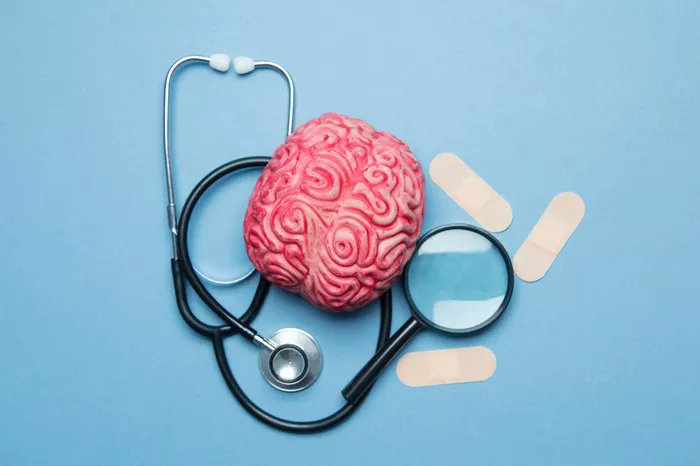Mental disorders are a wide range of conditions that affect mental processes, emotions, and behaviors. They can be mild or severe and can affect anyone, regardless of age, gender, or background. It’s important to note that mental disorders are not a choice one can make to “get” them. Instead, they result from complex interactions of genetic, biological, environmental, and psychological factors. This article aims to provide a comprehensive understanding of mental disorders, their causes, and the strategies for prevention and support.
Understanding Mental Disorders
Mental disorders encompass a broad category of conditions that affect cognitive functions, emotional well-being, and behavior. Some of the most common mental disorders include:
Anxiety Disorders: Including generalized anxiety disorder, panic disorder, and obsessive-compulsive disorder (OCD).
Mood Disorders: Such as depression and bipolar disorder.
Eating Disorders: Like anorexia nervosa, bulimia nervosa, and binge-eating disorder.
Substance Use Disorders: Involving alcohol or drug dependence.
Schizophrenia Spectrum and Other Psychotic Disorders: Including schizophrenia and delusional disorders.
Dementias and Neurocognitive Disorders: Ranging from mild cognitive impairment to Alzheimer’s disease.
Causes of Mental Disorders
The exact causes of mental disorders are often unclear, as they result from a complex interplay of factors:
Genetic Factors: A family history of mental disorders can increase the risk of developing one.
Biological Factors: Imbalances in brain chemicals, hormonal changes, and brain injuries can contribute to mental disorders.
Environmental Factors: Early life experiences, trauma, stress, and exposure to violence or abuse can increase the risk.
Psychological Factors: Personality traits, coping mechanisms, and thought patterns can influence the development of mental disorders.
Prevention Strategies
While it may not be possible to completely prevent mental disorders, there are strategies that can reduce the risk:
Promote Healthy Lifestyles: Regular physical activity, a balanced diet, and sufficient sleep can support mental health.
Encourage Social Connections: Strong social networks can provide emotional support and reduce stress.
Provide Access to Mental Health Services: Early intervention and access to mental health care can prevent the escalation of symptoms.
Create Supportive Environments: Fostering environments that promote emotional well-being and resilience can help prevent mental disorders.
Educate the Public: Reducing stigma and increasing understanding about mental health can encourage individuals to seek help.
Supporting Individuals with Mental Disorders
Supporting individuals with mental disorders involves a multifaceted approach:
Early Identification: Recognizing the early signs of mental disorders can lead to timely intervention and treatment.
Access to Treatment: Ensuring access to evidence-based treatments, such as therapy and medication, is crucial.
Family Support: Families play a vital role in providing support and understanding to individuals with mental disorders.
Peer Support: Connecting with others who have experienced similar challenges can provide valuable insights and encouragement.
Workplace Accommodations: Employers can support employees with mental disorders by providing reasonable accommodations and a supportive work environment.
The Role of Technology in Mental Health Support
Technology has the potential to revolutionize the way mental health is managed and supported. From teletherapy to mobile apps that track mood and provide coping strategies, technology can offer accessible and personalized support.
Teletherapy: Online therapy platforms can make mental health services more accessible, especially for individuals in remote areas or with limited mobility.
Mobile Apps: Apps that provide cognitive-behavioral therapy (CBT) exercises, mood tracking, and stress reduction techniques can support individuals in managing their mental health daily.
Online Communities: Online forums and communities can offer peer support and a sense of belonging for individuals living with mental disorders.
The Importance of Self-Care in Mental Health Management
Self-care is an essential component of mental health management. It involves taking deliberate actions to maintain one’s mental, emotional, and spiritual well-being.
Mindfulness Practices: Activities such as meditation, yoga, and deep breathing exercises can help reduce stress and increase self-awareness.
Healthy Lifestyle: Regular exercise, a balanced diet, and adequate sleep are foundational to overall mental health.
Hobbies and Interests: Engaging in activities that bring joy and a sense of accomplishment can improve mood and provide a sense of purpose.
Conclusion
Mental disorders are complex conditions that affect millions of people worldwide. They result from a combination of genetic, biological, environmental, and psychological factors. While it is not possible to “get” a mental disorder by choice, understanding the causes and risk factors can help in prevention and early intervention. By promoting healthy lifestyles, encouraging social connections, and providing access to mental health services, we can support individuals with mental disorders and work towards a more mentally healthy society.
Related Topics:

